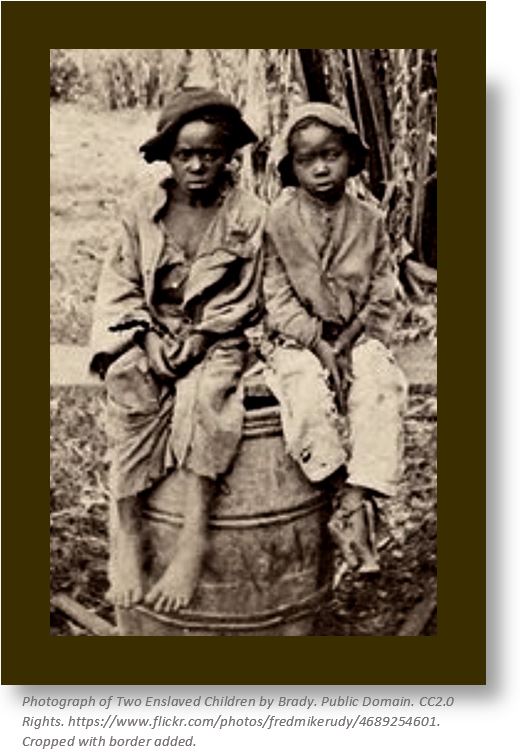You descend from a slaveholder’s (SHs) family in Alabama, let’s say, and have worked hard to document the lives of your 3rd-great-grandparents and their seven children, who lived on a self-sustaining plantation in the rural Black Belt. They were wealthy, you say. They owned a hotel, a still, ran a toll bridge and had forty-two enslaved persons (EPs). They were an important family in their county. You have every scrap of information that can be found about all nine of them.
Very good work! Excellent job of doing genealogy as well as it can be done “in the box.” But can you say you know your family? Would they recognize the nine-person world you’re seeing as their life?
Whose hands rocked the children to sleep? Drew their baths and prepared their food? Sewed, mended, washed, and ironed their clothes? Nursed them when sick? Who dug the graves for the two children taken in epidemics? Forty-two people “beyond kin” gave them wealth, comfort, and social status, day in and day out, from birth to death.
How many of the forty-two can you name? Do you know their ages and how long they served your family? Do you know who was married to whom among them, who was the parent of whom? Do you know how much they were bought or sold for? What their skills were? Which of the SH’s children inherited them after the father’s death? What last name they took after they were freed, and where they died and are buried? You have a whole new adventure ahead of you.
It will be the toughest and most rewarding part of your journey in genealogy yet.
As we seek to recover the stories of our ancestors, we often find that the fullest possible story requires us to step outside of traditional family relationships. Friends, colleagues, employers, or servants may hold the key to your family story. The Beyond Kin Project encourages us to go “beyond kin” in our research and offers a method of linking these Beyond Kin relationships together in our genealogical software.
We particularly encourage the descendants of SHs to use this method to fill in the vital missing story of their families by documenting the EPs whose service bought them comfort, wealth, and social status. The story will not be complete until you do.
The reasons-you-should menu
- Descendant of slaveowners, do you still hold the key?
- The records of slaveholders
- The group approach to slave identification
- The rest of the family picture
- The challenge and opportunity of a lifetime
- If you don’t have slaveholding ancestors
Sign up to receive notices of new developments in the project. We will not share your email address outside our team.


